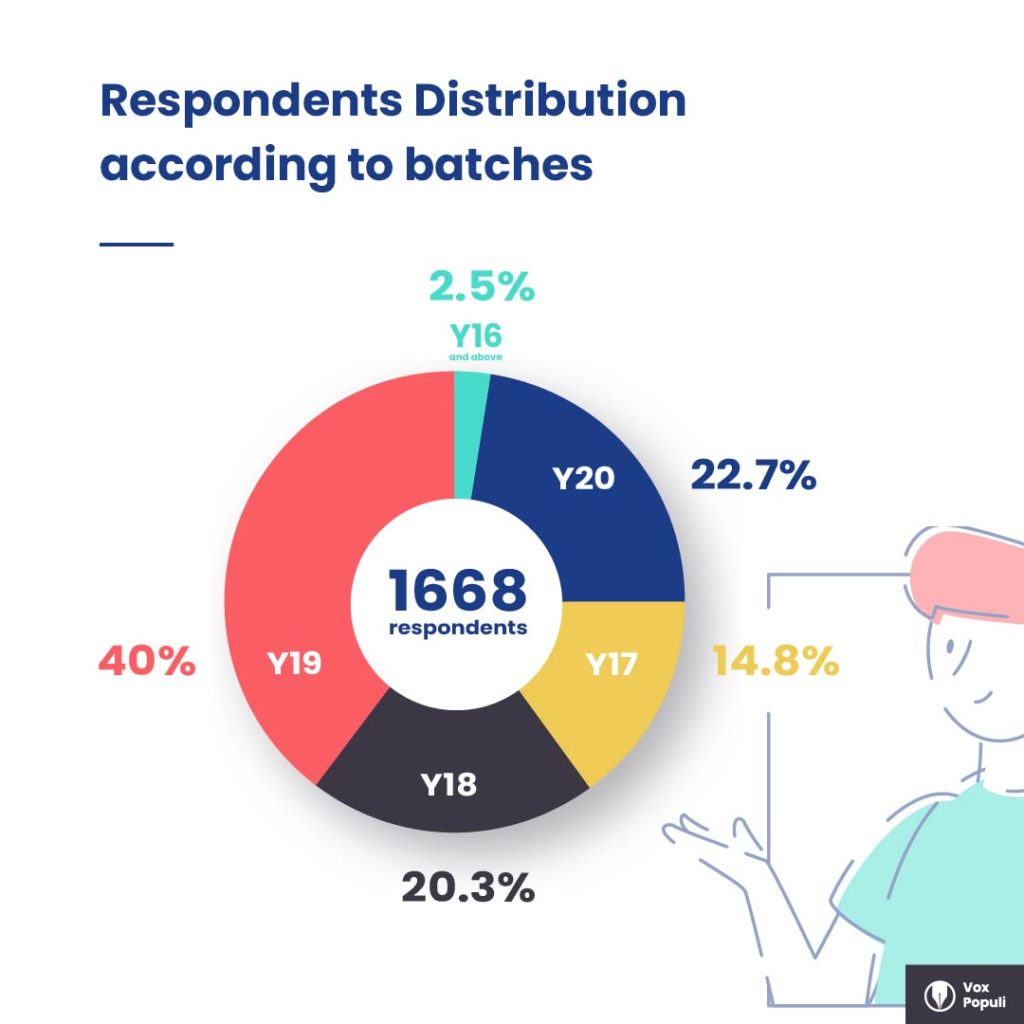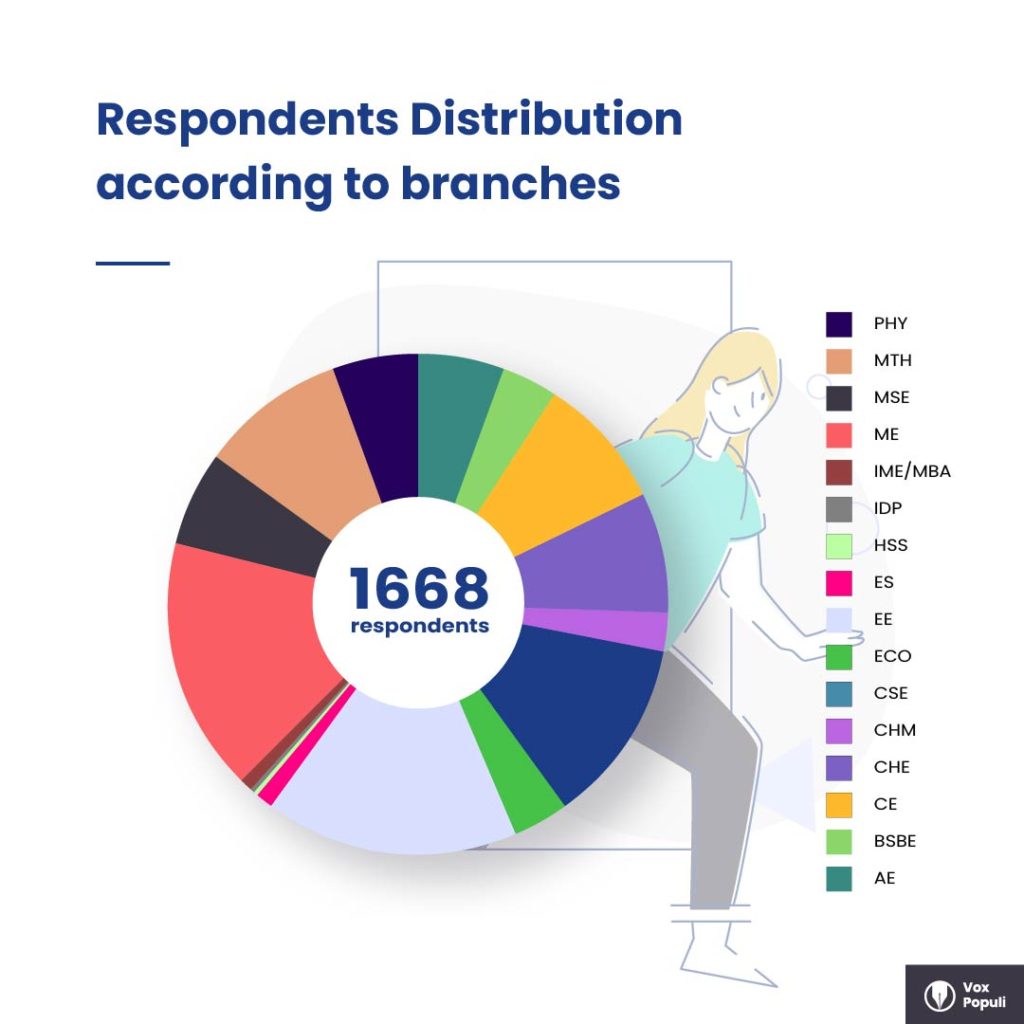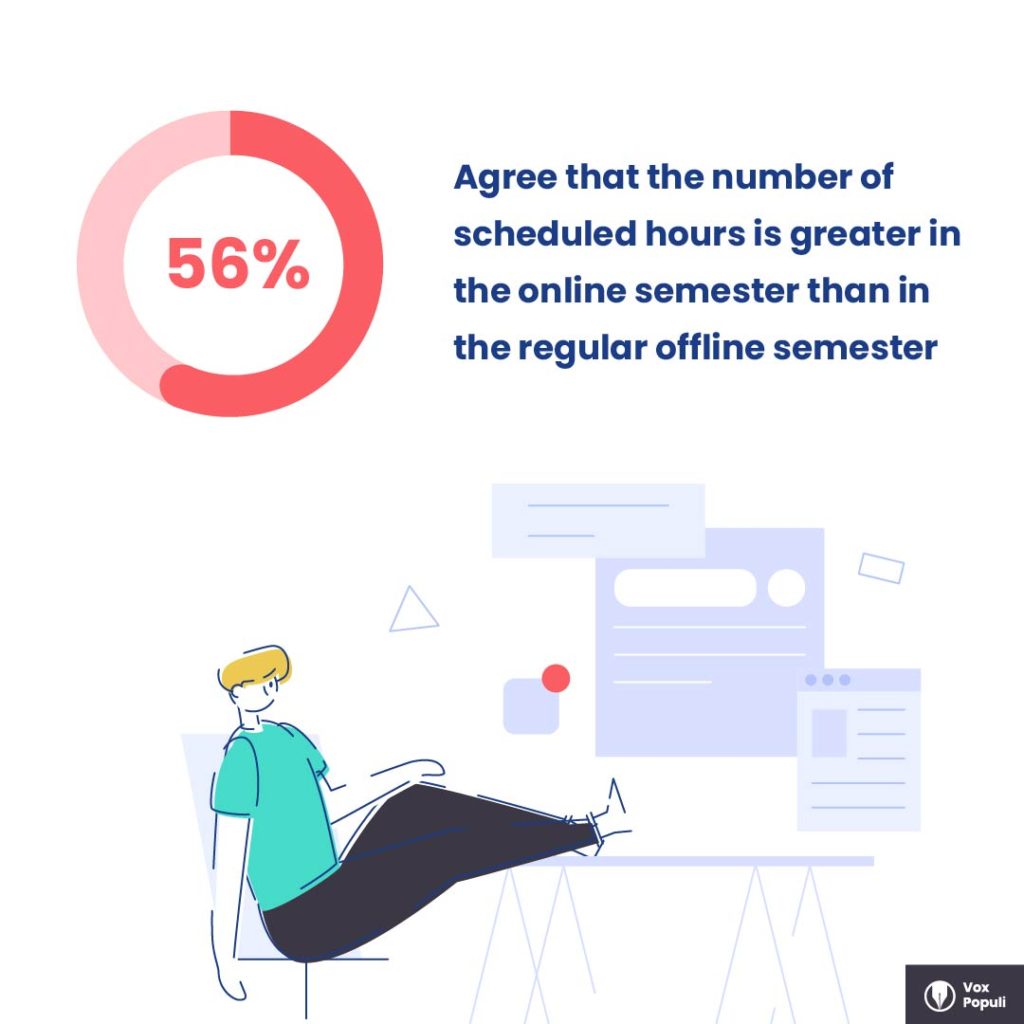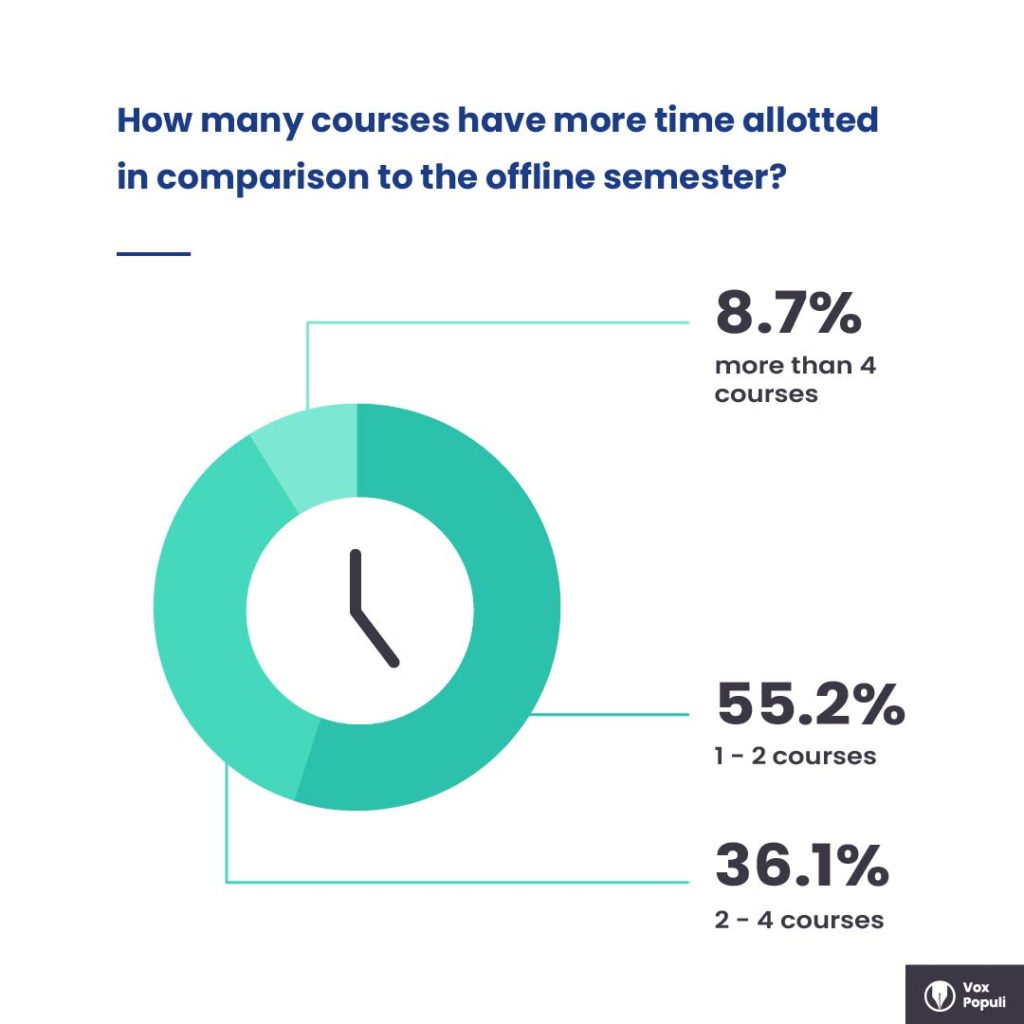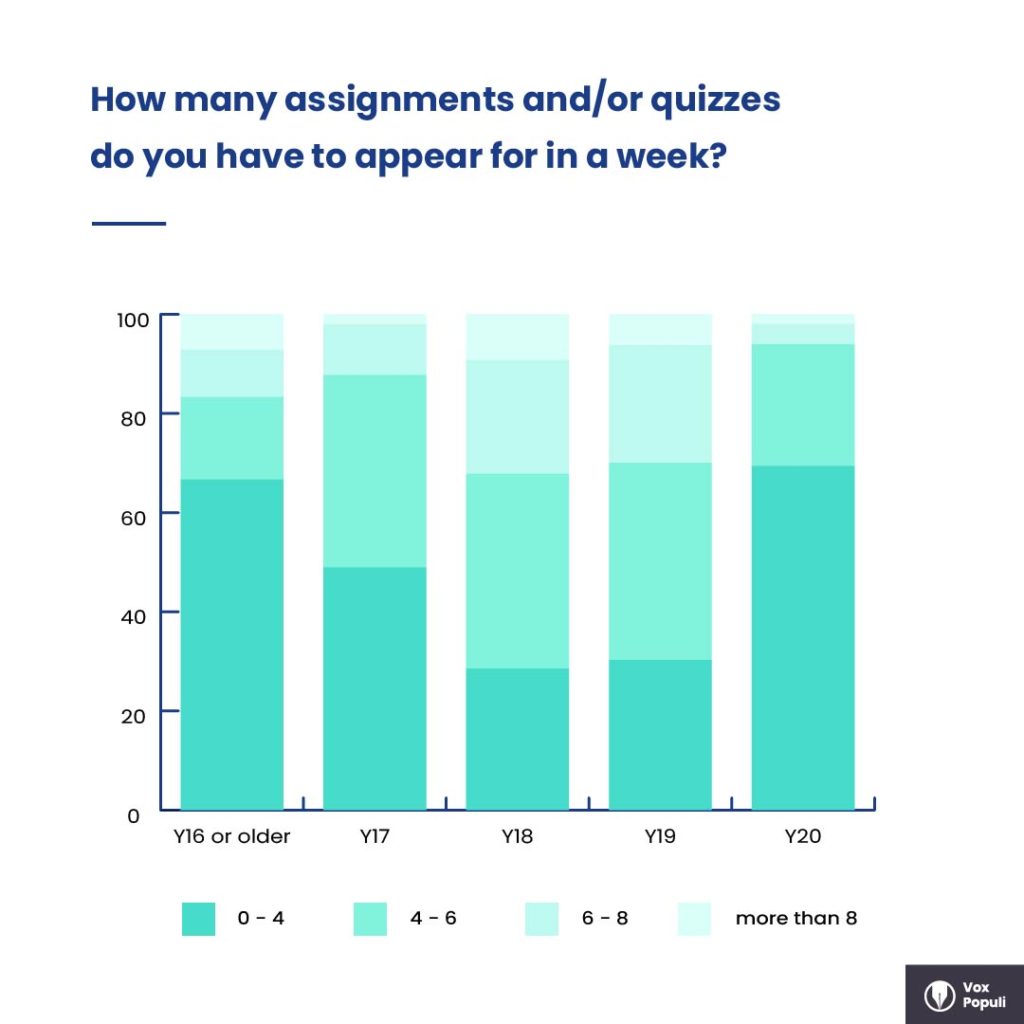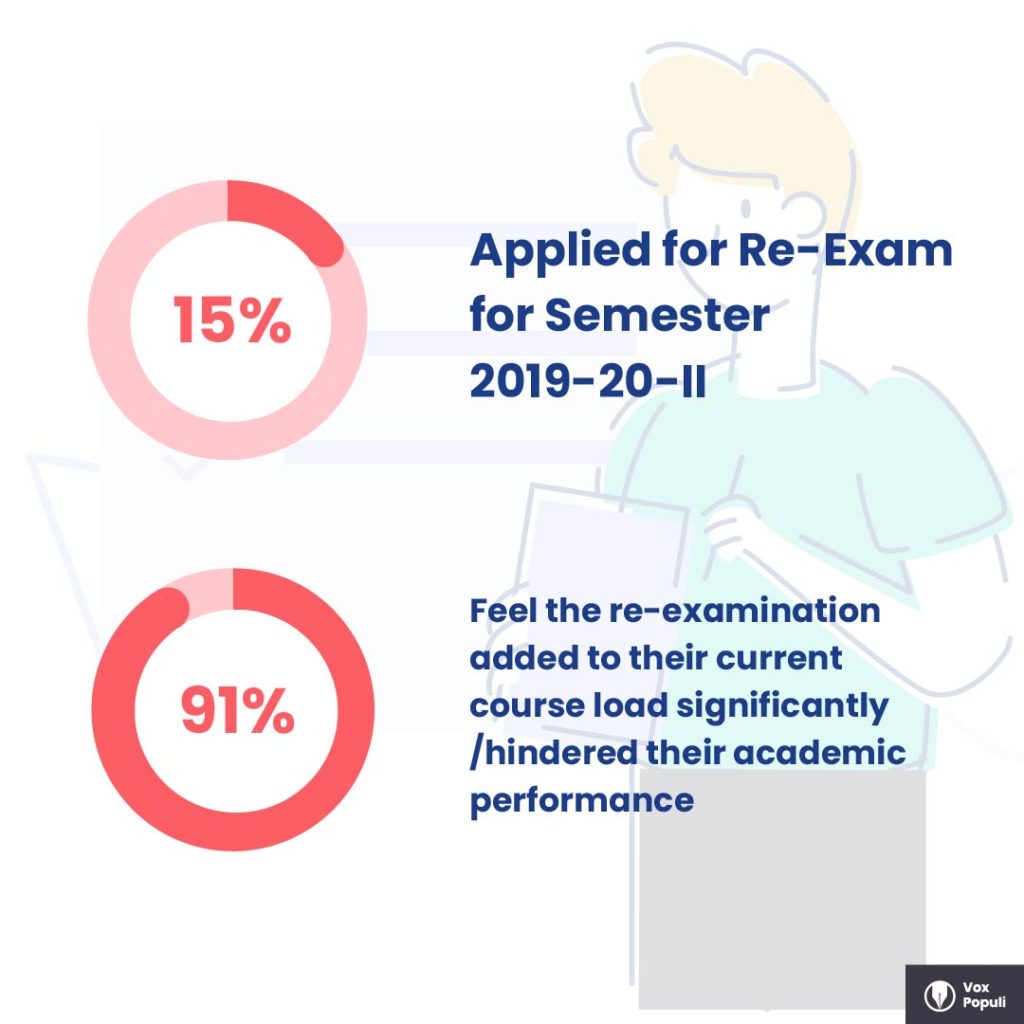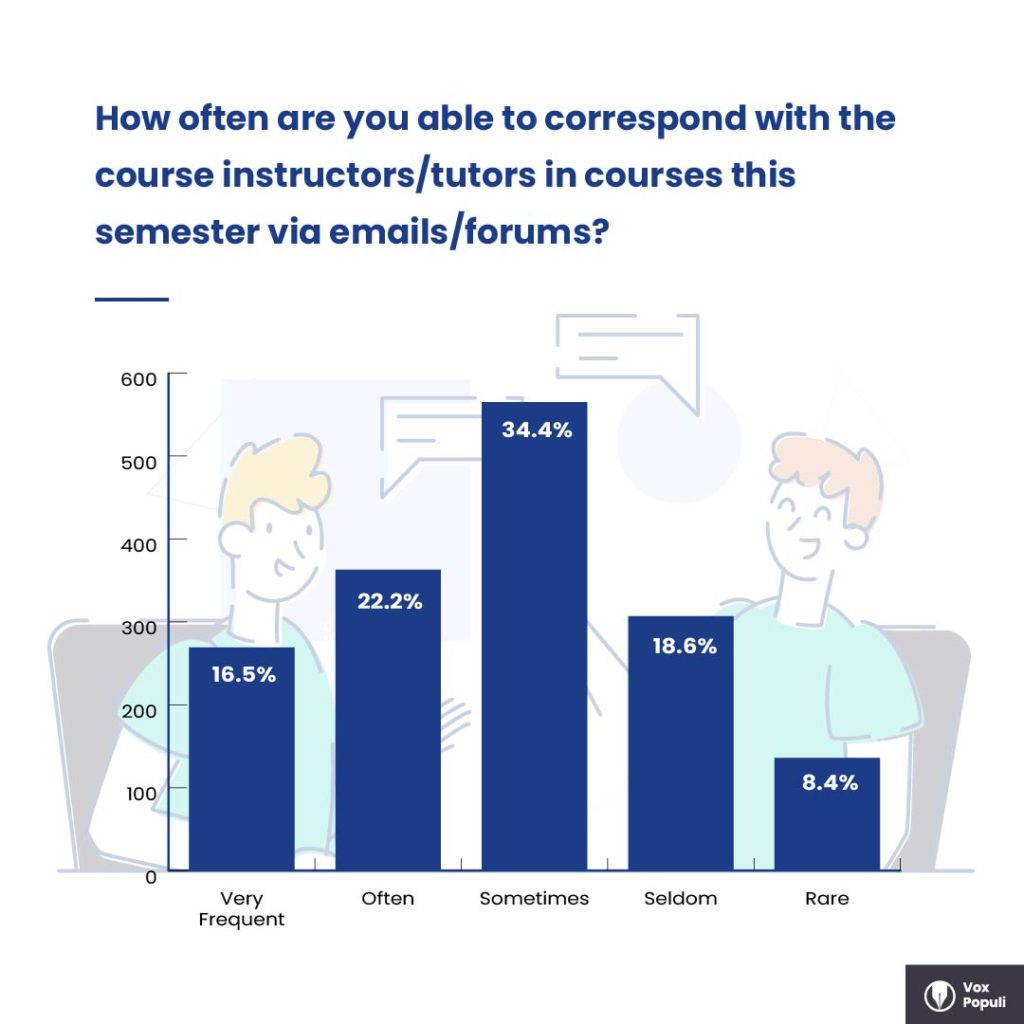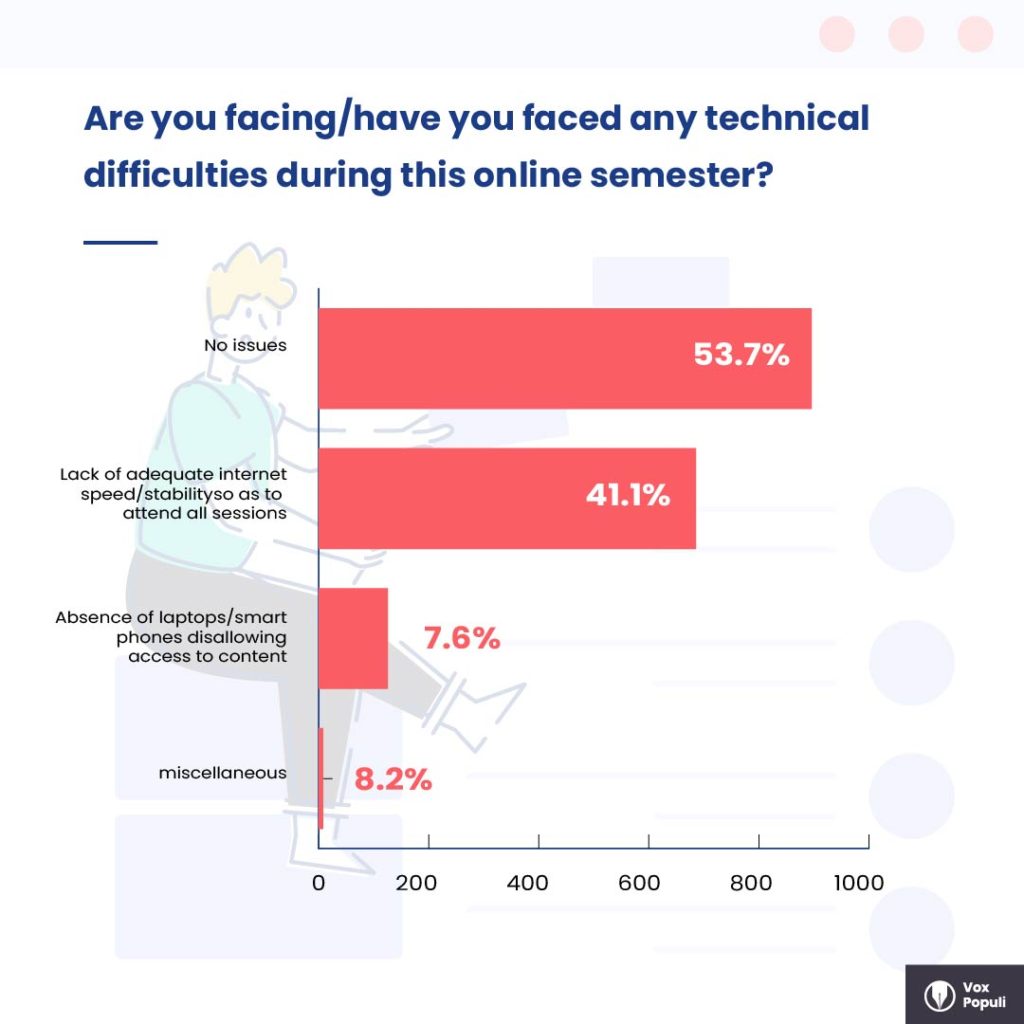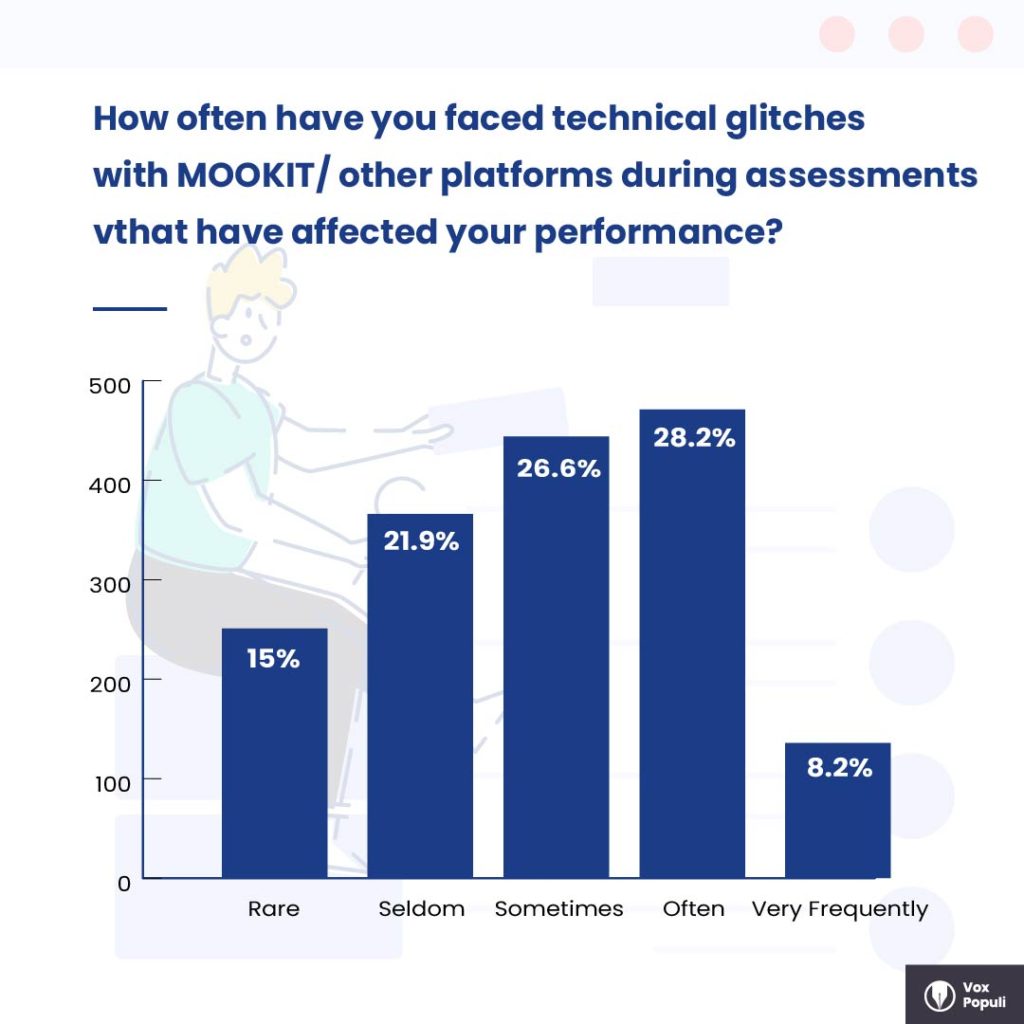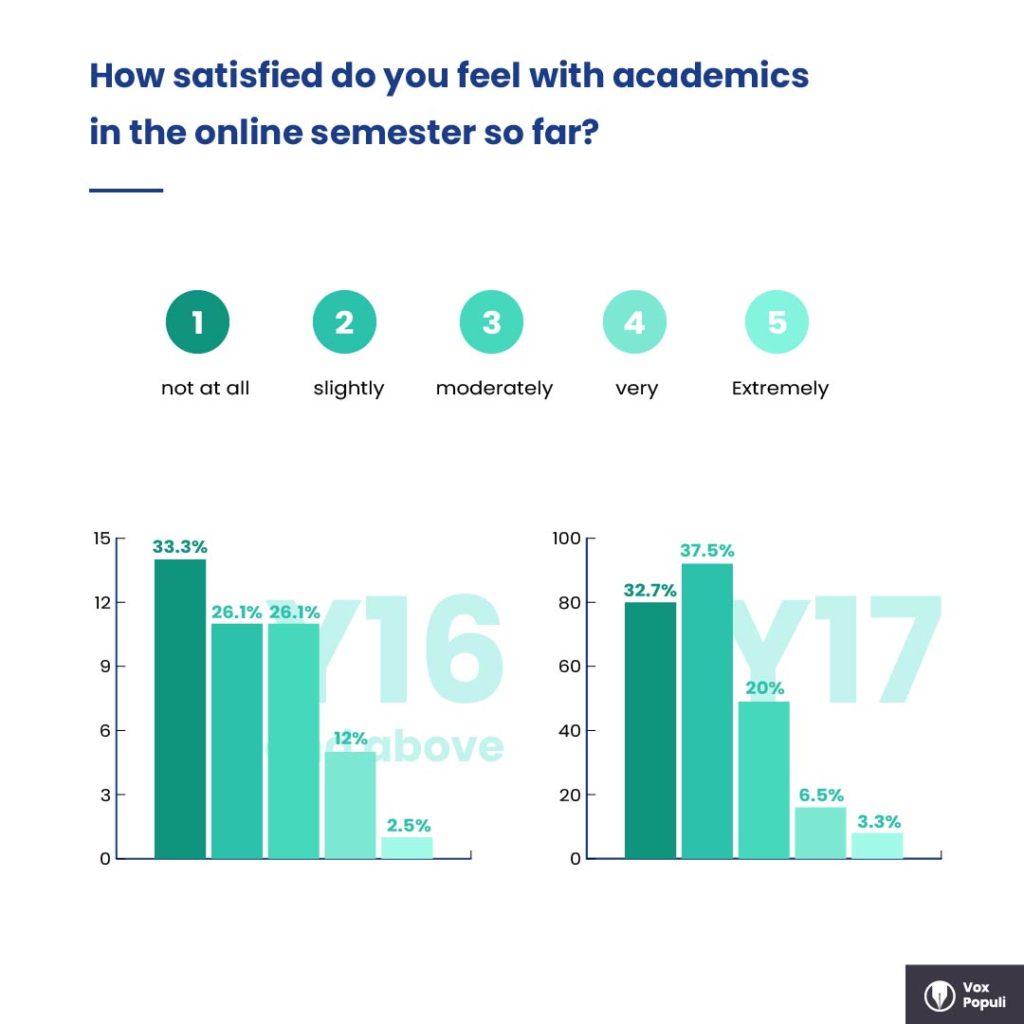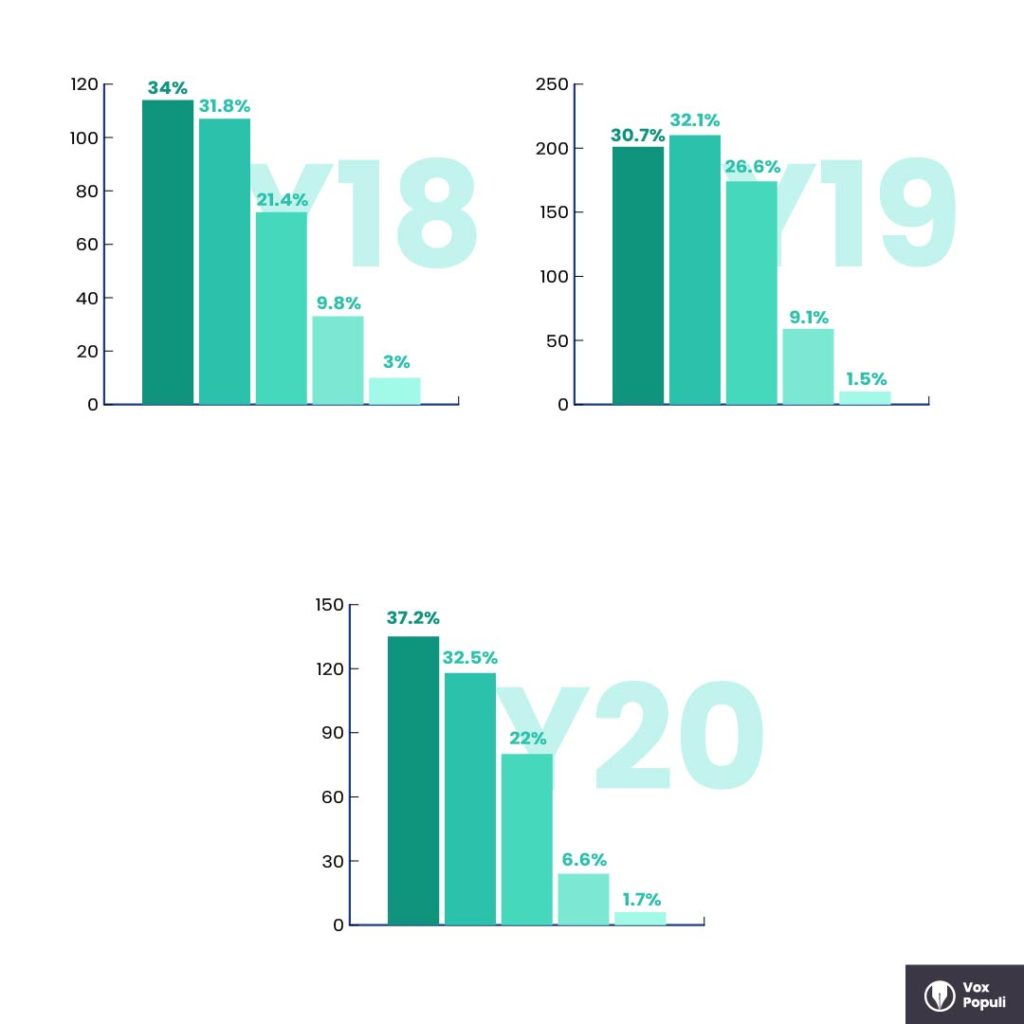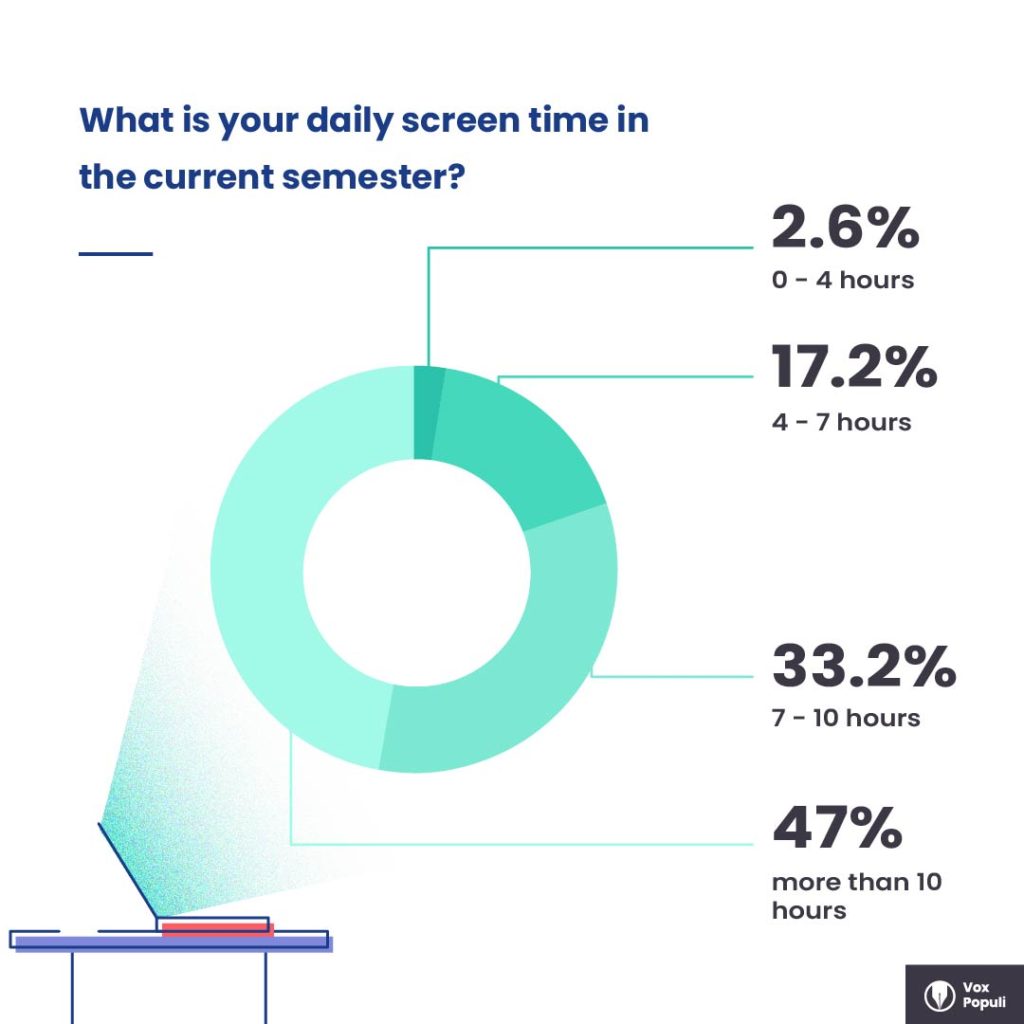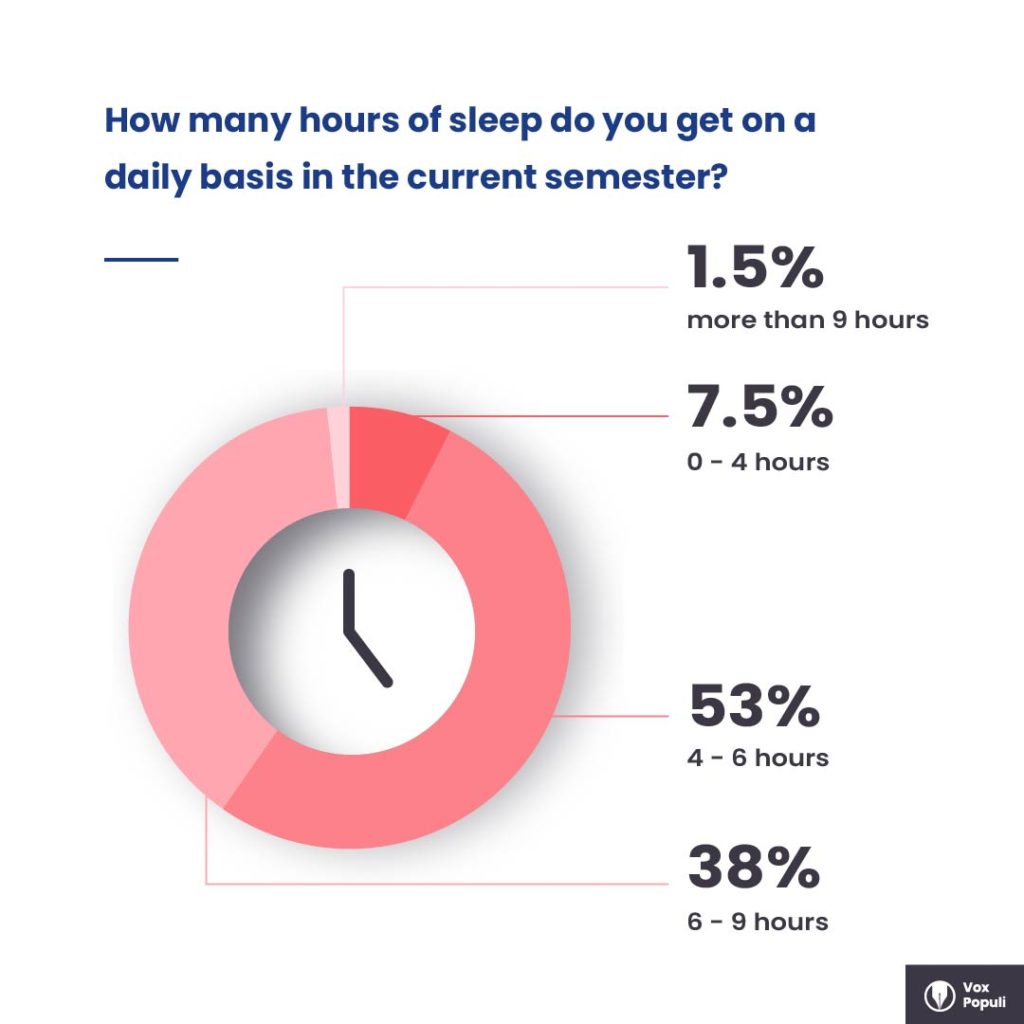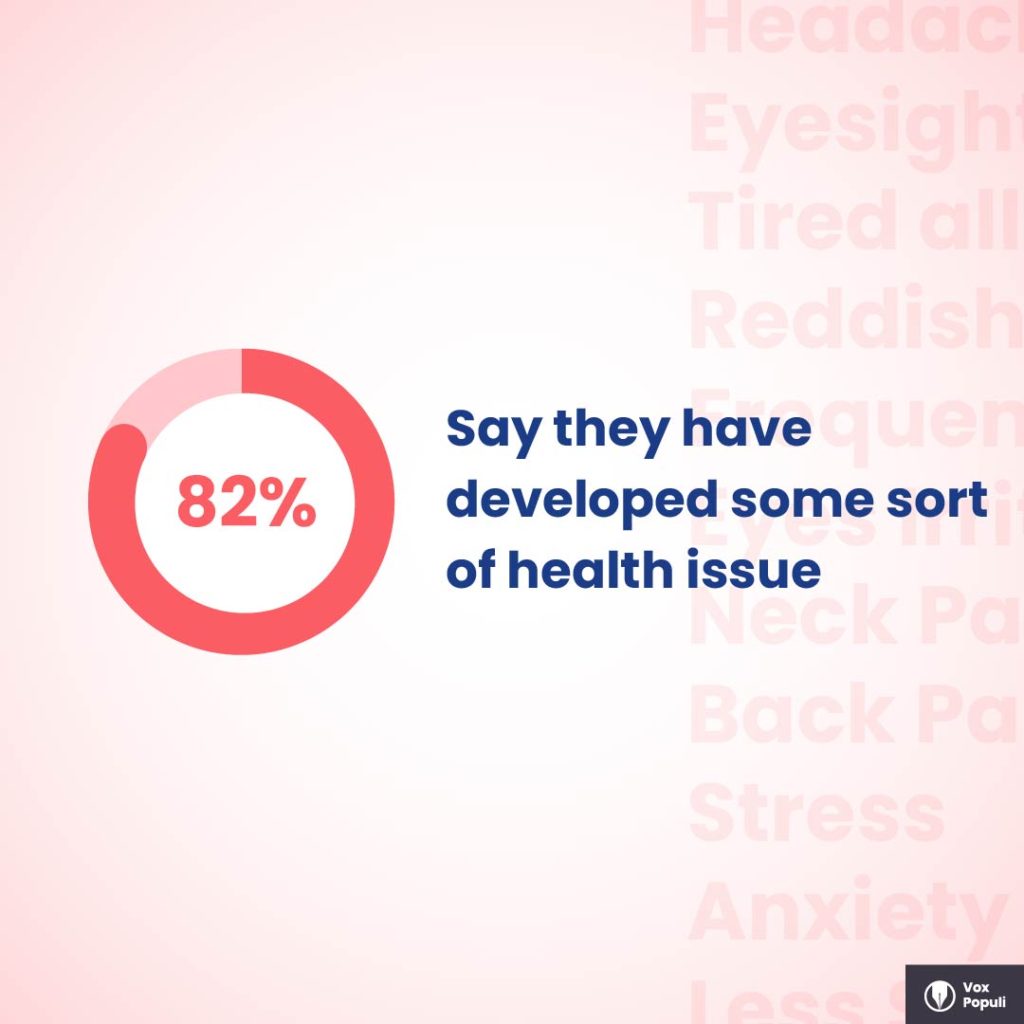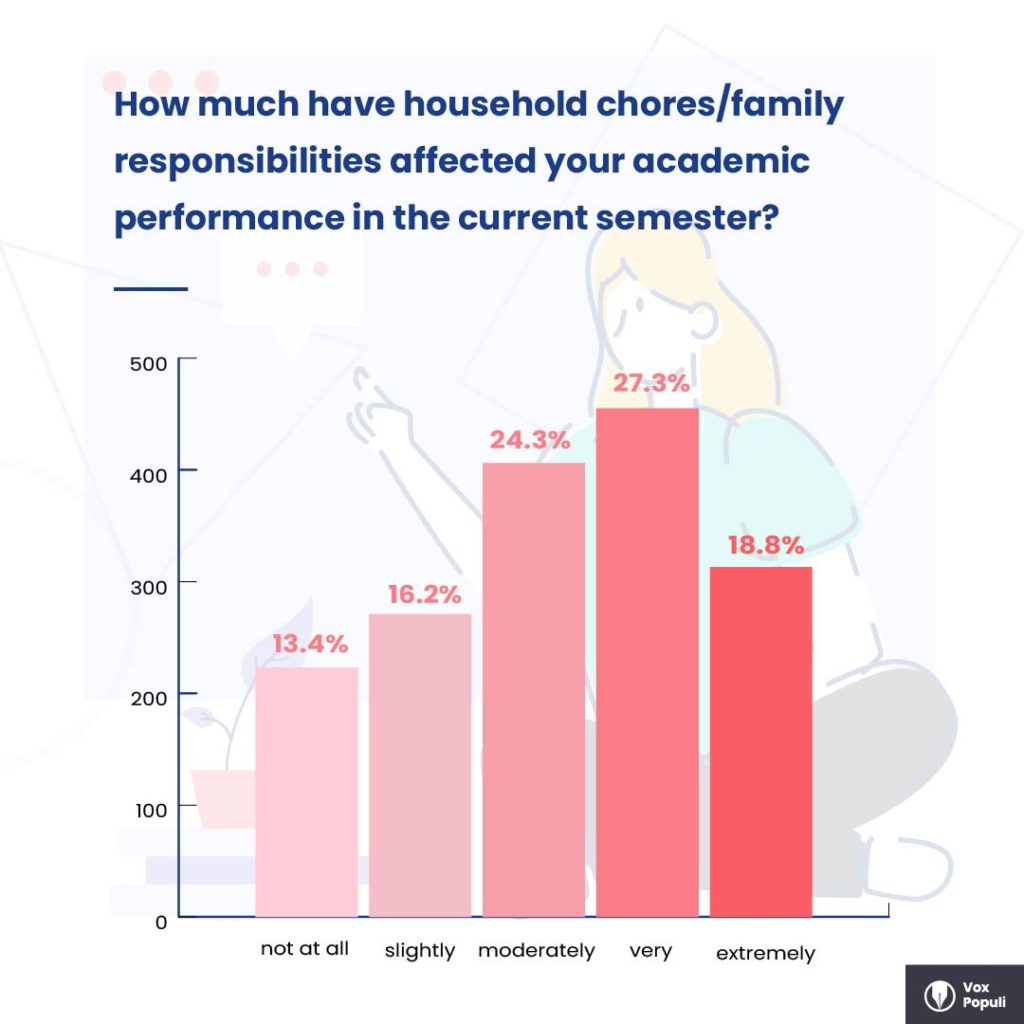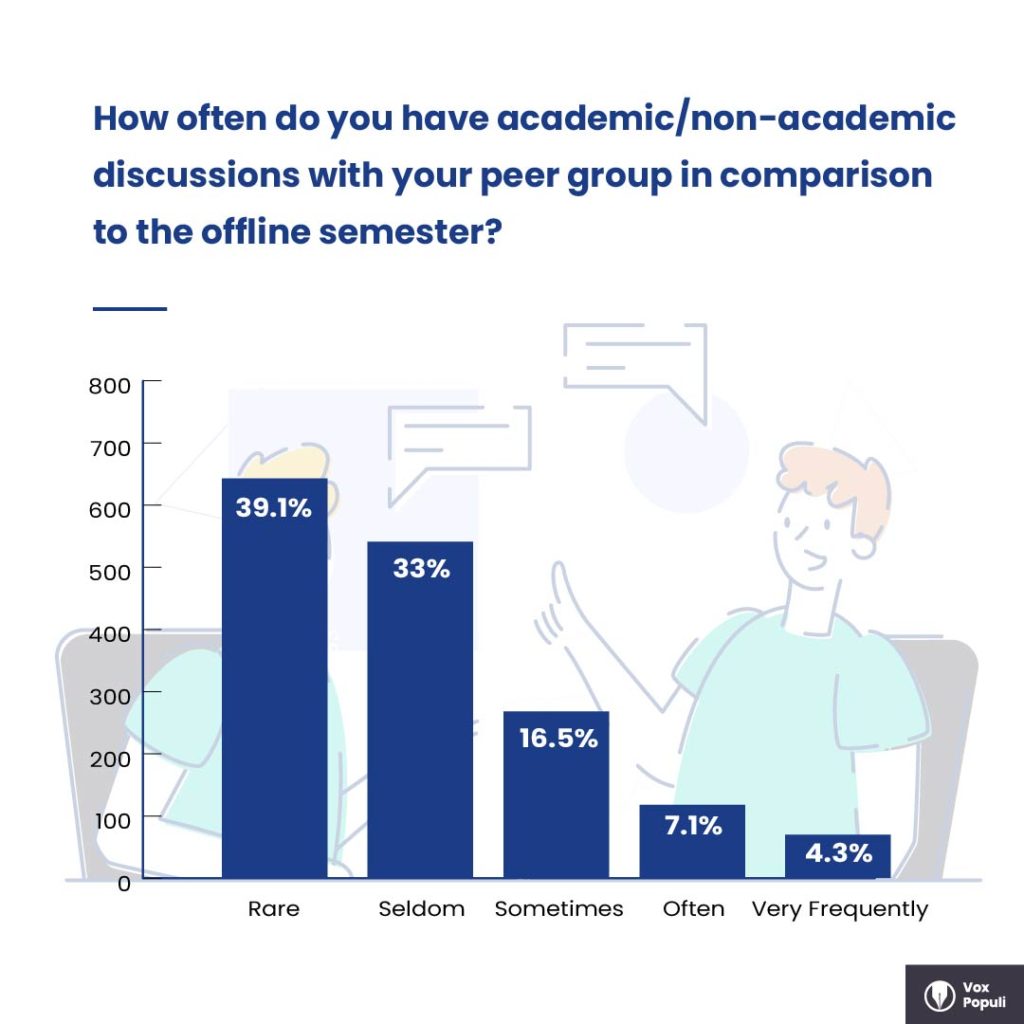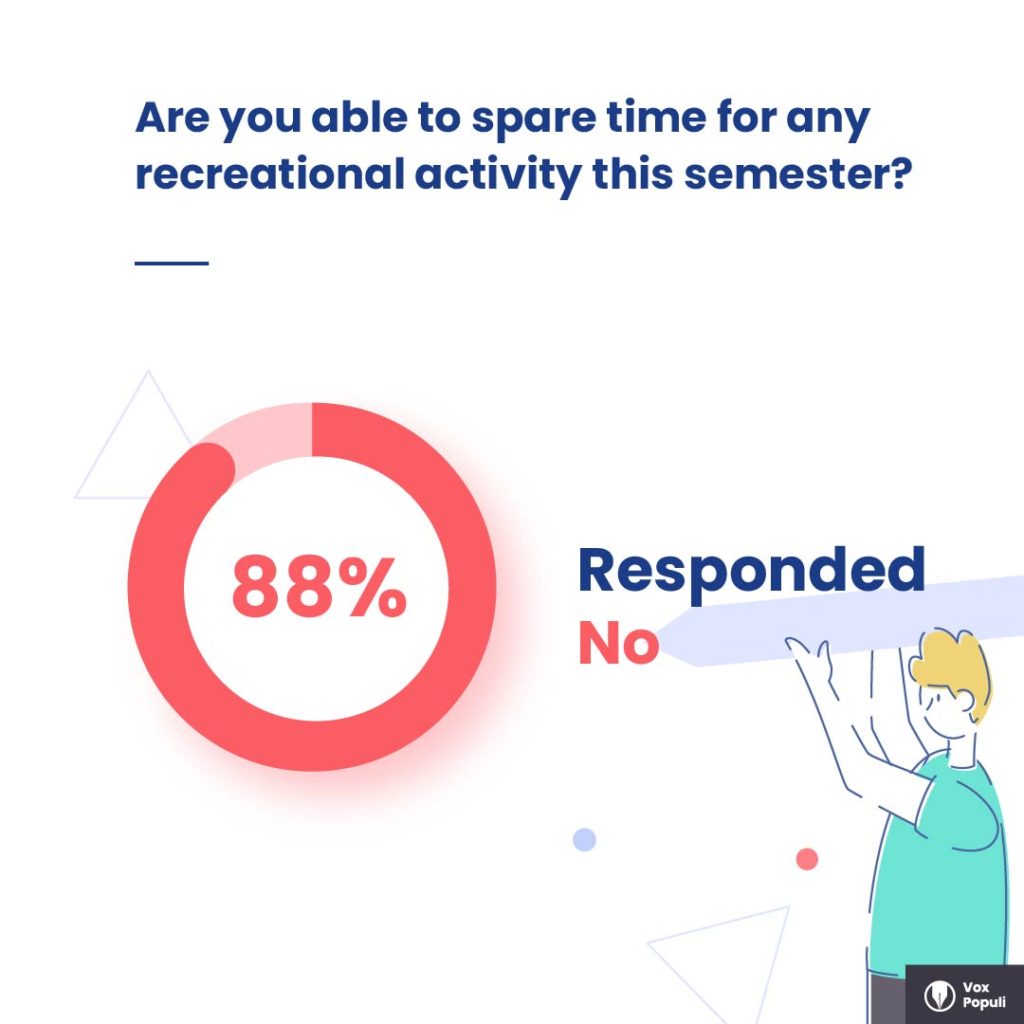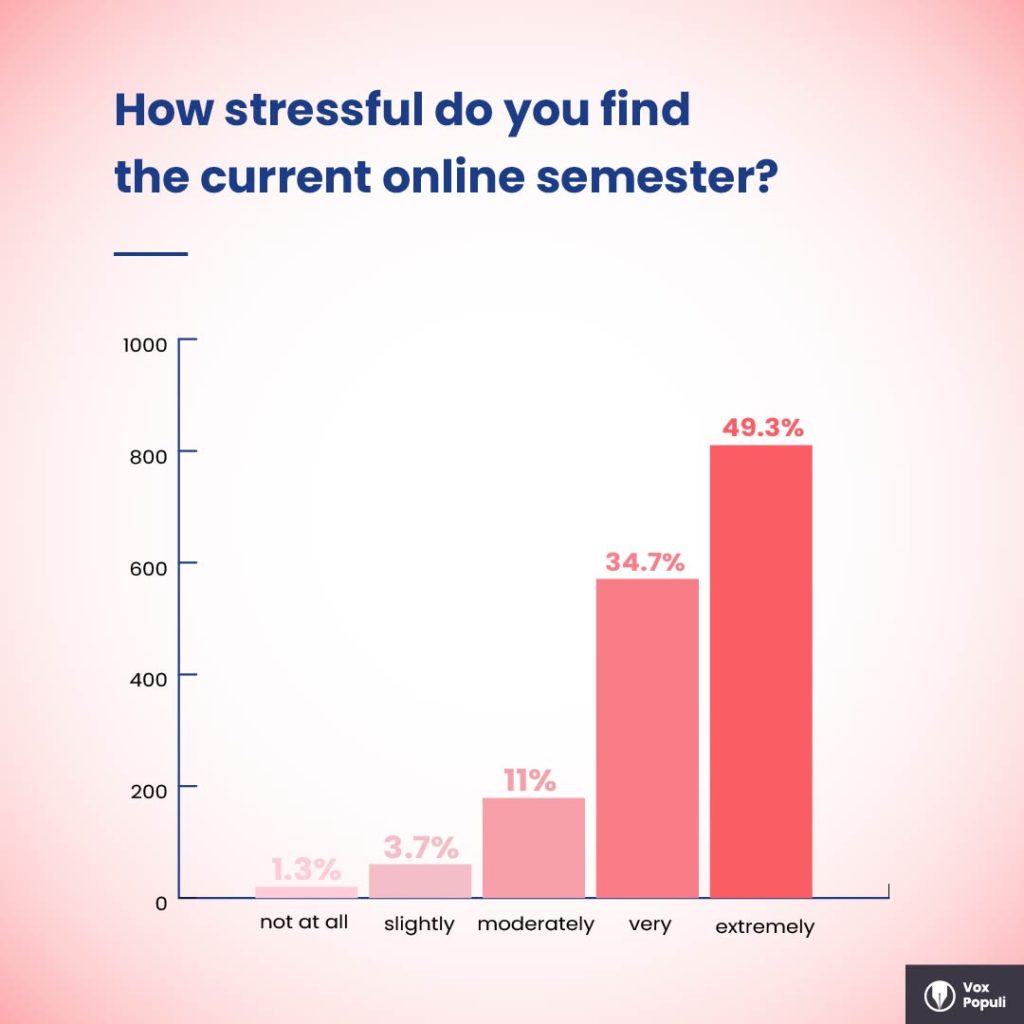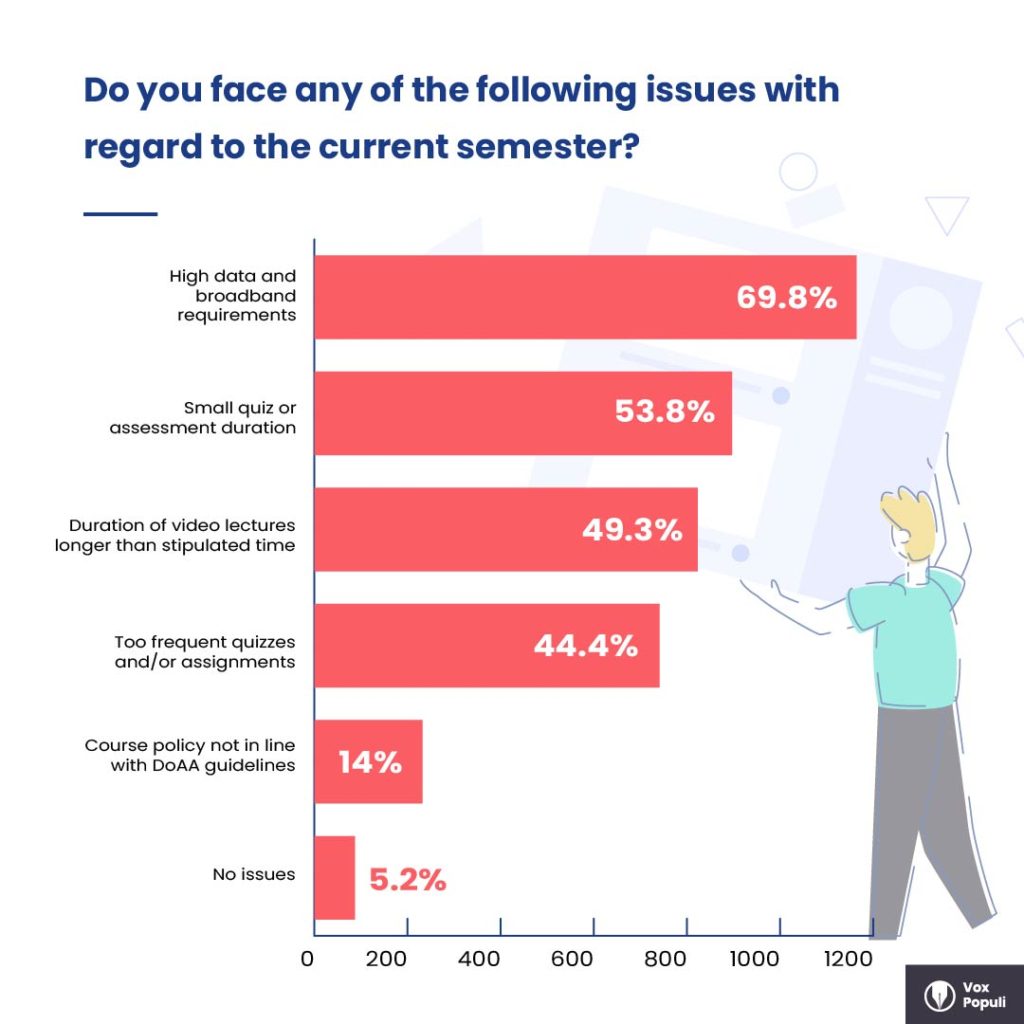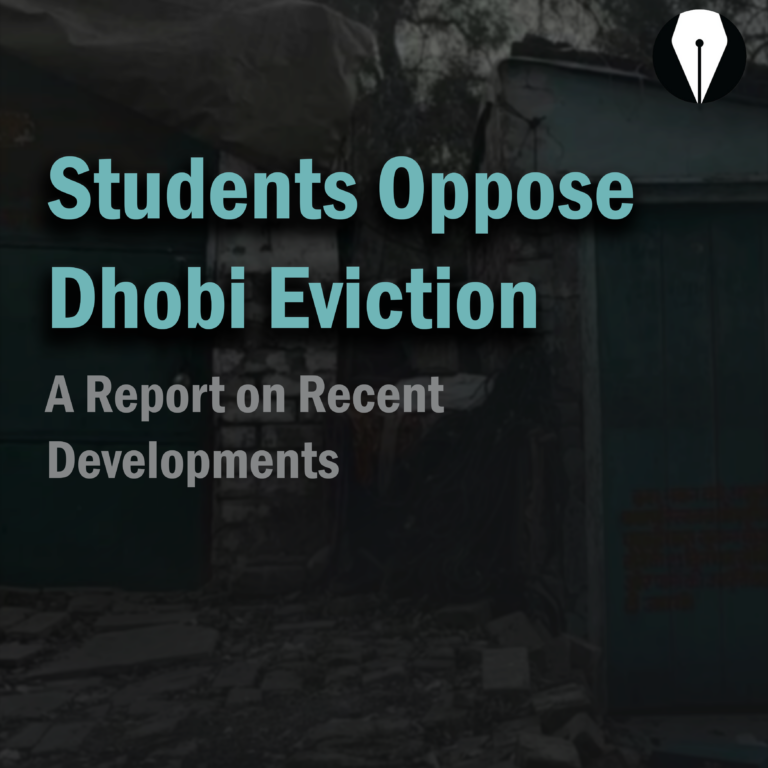The start of the first semester of the academic year 2020-21 in September 2020 marked the beginning of IITK’s first of its kind online semester. With a revamped academic calendar and a different mode of instruction, the students and the faculty braced for their first experience with the online scheme of things. With new teaching models being adopted, and diverse challenges being faced, the online semester so far has been altogether different for all campus community members. With the end of the mid-semester examinations, Vox Populi presents the results of the recently conducted survey, which aims to raise the academic and technical issues faced and brings forward the state of the mental and physical well-being of IIT Kanpur students.
Vox received 1668 responses from students of different batches and also responses from the newly arrived Y20 PG community. The survey brought forward results on various aspects of the online semester, ranging from the concerns regarding the academic load, integrity in examinations, technical concerns of the students, and also shed light on the students’ mental and physical health. The survey also received suggestions from the campus community on how the online semester could be made more accommodating and be implemented better.
Academic Concerns
With the start of the spring semester from September, the semester had to be compressed to a duration of 3 months instead of the usual 4 month semester. One noticed aftermath is the apparent increase in academic load faced by the students. With six working days in a semester and a new model of instruction, students raised concerns regarding the increased academic load. 56.1% of students responded that the number of scheduled hours for courses is more than the credits allotted to the courses. Further, while 55.2% stated that they faced the above issue in only 1 or 2 courses, 36.1% said that this was the case in about 2-4 of their courses while 8.7% stated that this was the case in more than 4 courses. Possible reasons for such a reaction could be the addition of discussion hours and additional lecture hours per week due to the compression of the semester duration.
One of the key elements of the online semester has been the continuous evaluation policy being adopted by instructors of several courses. The survey also gauged the number of assignments/quizzes that students had to appear for in a week.
Overall, around 43% of students had up to 4 quizzes/assignments to appear for in a week, at the same time, about 5% had to appear for more than 8 assessments in a week. Across batches, while the older Y17 and Y16 have about 50% students which have less than 4 assessments a week, while at the same time Y18 and Y19 have about 65% students appearing for more than 4 quizzes/assignments in a week. The Y20 PG batch has about 60% of students appearing for less than 4 assessments in a week.
Another policy implemented in the current semester was the re-exam conduction for the 2019-20 II semester. The survey brought forward numbers about how many students appeared for the re-examinations and if they felt that it added to their academic load and hampered their performance.
15% of respondents, which is 248 students, opted to appear for the re-examination. Out of these, close to 91% of students responded that the re-examinations of the previous semester was added academic load and hindered their academic performance.
Communication between instructors and students has been one of the key challenges that had to be addressed in the conduct of the online semester. While 61% of the respondents were able to correspond with their instructors/tutors more often than not, the remaining 39% of students faced challenges and issues in communicating their academic/ technical queries to their instructors.
Technical Issues faced by students
The online scheme of instruction also meant the adoption of online platforms for teaching and discussions. With MooKIT and other platforms being used for lectures and conducting assessments, the survey gauged if the students were facing any issues with online platforms being used and any other technical queries that the students had.
While close to 54% of students said that they did not face technical issues, about 41% of students responded that they faced a lack of adequate internet speed/stability to attend lectures and appear for examinations putting them at a disadvantage. About 7.6% also stated that they did not possess the necessary specifications of devices(phones/laptops) to cope up regularly with the academic load.
With regard to MooKIT and other platforms, about 36% of respondents complained that they faced technical glitches during assessments quite often. With the progress of the semester, MooKIT too has seen several improvements but it is evident that the students are still having technical concerns with its user interface.
Issues with course policies and assessments
The survey also asked respondents if they faced any unreasonable demands from professors which went over the guidelines issued by DoAA. The students raised several issues some of which included the following:
1. Lack of technical support during assessments. A number of students raised concerns on how mailing their answer copies within time limits to instructors/TAs were not considered for grading when they faced technical glitches with the MooKIT system.
2. Assessments deviating from course-syllabus and requiring students to use the internet to find answers to questions in quizzes/examinations.
3. Difficulty in understanding lab-oriented courses in online mode of instruction due to absence of lab-component.
4. Instructor conducting proctored examinations which require high data and internet stability for longer hours and also require camera/scanner apart from mobile/laptop.
Several students also raised issues with frequent changes in grading policies and harsh grading schemes in order to curb cheating which resulted in negative scores and averages. A number of students also said how the continuous evaluation paradigm in certain courses was being implemented with several quizzes being held at once to cover up for earlier weeks.
The academic takeaway from the online semester has also been one of the key points of discussion. The survey asked the respondents about how satisfied they were with the academics in the online semester till the mid-semester examinations. The question fetched the following responses batchwise:
While the batch-wise picture can be seen from the graphs above indicating how a large percentage of every batch is finding the academics to not be satisfactory, In the overall sense, more than 65% of respondents are not satisfied with the academics in the online semester with 558 respondents(33.5%) showing extreme dissatisfaction. Only 36 respondents(2.2%) were extremely satisfied and 140 respondents(8.4%) are very satisfied with the academics in the online semester.
Health Issues
The current semester has also brought about a new way of life for the student community and its effect on the health of the students was also brought forward with responses to the survey.
With the screens replacing blackboards and study tables becoming lecture halls, drastic numbers came forward with regard to the screen time of students in the online semester.
47% of students had more than 10 hours of average screen time and about 33% of students had more than 7 hours of screen time daily, In the cumulative sense, implying that about more than 80% of students were spending more than 7 hours in front of a screen every day!
Another surprising number was how over 60% of students were getting less than 6 hours of average sleep every day. Apart from these concerns, many students complained of Insomnia, High-Stress levels, Anxiety, and Tinnitus due to excessive use of earphones, Migraines, Sleep Apnea, and loss of appetite.
Students staying at home also meant for some subtle changes in their lifestyles. One important aspect is the addition of household chores and family responsibilities. About 46% of students responded that the addition of these responsibilities has affected their academic performance in the semester to a significant extent. The other key aspect of change in the lifestyle of students is the absence of peers for discussions. More than 74% of students responded that they seldom and rarely get to have non-academic/academic discussions with their peer group in comparison to the usual semester. It was also found that around 88% of respondents could not spare time for any recreational activities in the current semester. Few students mentioned how the semester has left them with no time to pursue their hobbies and interests as they have some or the other quiz/assignment to appear for daily. Numerous students also expressed how they were not having any social interactions outside of their homes.
A very important number for the current semester that came forward from the survey results is ‘How stressed are the students?’. While the offline semester also had its fair share of stress, around 50% of students responded that they found the online semester to be extremely stressful. Overall, close to 85% of respondents found the semester to be very stressful and the numbers indicate how the issues and concerns highlighted above have accumulated to make this semester a very difficult ride for the students.
Suggestions
Ample issues and suggestions were put forward by students with regard to how the semester could be improved and certain changes and suggestions could be acted upon to make the semester more friendly to cope up with.
1. Students expressed their concerns regarding the prevalence of cheating in assessments through the online mode and suggested having innovative and improved evaluation means. Cases of mass cheating were also brought forward which resulted in high average scores. Suggestions included introducing group-based assessments for evaluations and to introduce new examination patterns instead of the usual policies which were followed in the offline semester.
2. Several students also suggested that the courses follow the DoAA guidelines for the conduct of courses and that the duration of lectures be as per the 50 minutes lecture-35 minute video metric and that the lectures for the week be uploaded in advance for the students to cover up on the topics beforehand.
3. With uncertain internet stability and electricity and connectivity issues being faced by students from different parts of the country, it was suggested that surprise quizzes and attendance policies allow certain leeway and room for improvement for students who face issues during lectures/assessments. It was also suggested to provide ample time in case the assessment included having to scan and upload files to online platforms.
4. A number of concerns were brought forward regarding the lack of availability of lecture slides and low-quality audio/video in recorded lectures, these could be improved upon as the semester proceeds into its later half.
5. Some students also raised concerns regarding a lack of response by instructors/tutors in mails and also about tutorial timings being shifted as per the convenience of tutors. While uncertainties prevail due to several circumstances, these concerns can be addressed and be remedied by the instructors/tutors.
6. Several suggestions included the need for a break from the continuous evaluation paradigm and the need for a recess or a couple of short breaks in the semester to have a break from the academic load in the current semester. With six working days in a week and continuous assessments and lectures to be viewed, the semester has been an uphill task for students to get through.
With the mid-semester examinations coming to an end and the regular academics resuming, the students get ready for the second half of the online semester journey. Apart from the concerns and suggestions put forward by the student community, the most prominent suggestion among all was how being back on campus would make the semester less stressful, closer to their friends, and bring back a sense of normalcy. With the responses received, many academic and non-academic concerns could be resolved in the second half, and it remains to be seen how the students fare in their first tryst with the online scheme of things. With about 6 weeks remaining in the online semester, students gear up to face the remainder of the online semester aiming to improve their academic scores and to hopefully get in a better state of mental and physical well-being.
Credits : Ananya Gupta, Aryan Pandeya, Aryan Mundada, Raj Varshith Moora



